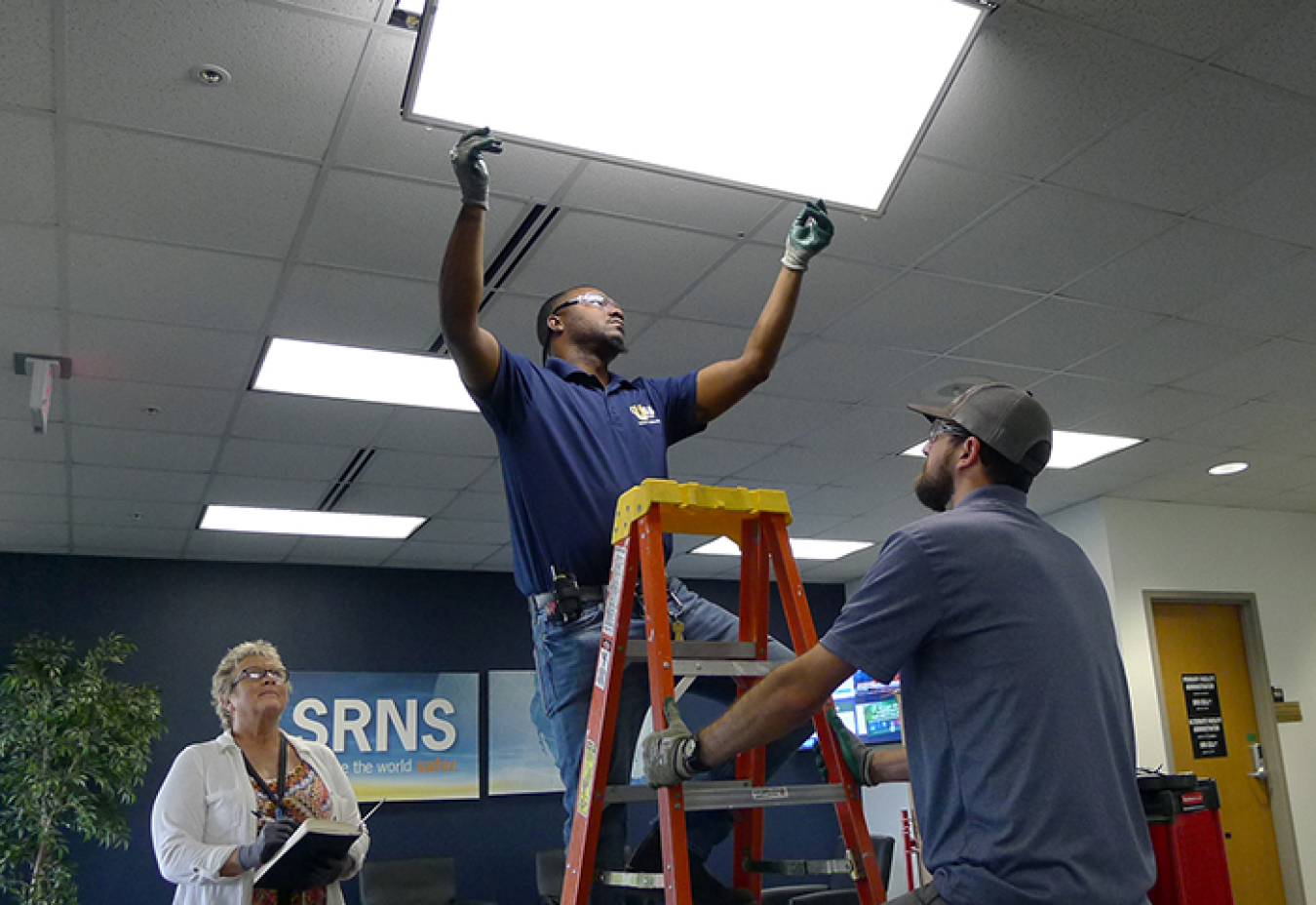
AIKEN, S.C. – EM contractor Savannah River Nuclear Solutions (SRNS) is sharing knowledge and experience with small business mentor-protégé programs throughout the DOE complex while steadily increasing opportunities for small businesses at the Savannah River Site (SRS).
The DOE Office of Small and Disadvantaged Business Utilization recently hosted an SRNS Mentor-Protégé Center of Excellence event at DOE headquarters in Washington, D.C. Guests included SRNS protégé companies.
“We were able to cover some very important topics, and I’m humbled that we were provided this opportunity,” said Alex Agyemang, SRNS small business liaison officer.
The SRNS Mentor-Protégé Program is a Department initiative designed to help small businesses enhance their capabilities as subcontractors across the DOE complex. The SRNS program includes the Mentor-Protégé Center of Excellence, where mentor companies share best practices and lessons learned.
Agyemang noted that few DOE sites have a small business mentor-protégé program, and those with one often mentor only one or two companies. There are six protégés in the SRNS program supporting $15 million in subcontracts.
“Mentor-protégé programs are a tremendous asset for small businesses and participating EM contractors, providing valuable insight to ensure success at the site and complex level,” Agyemang said. “Pouring into these small and often new companies, teaching them best practices and showing them how to provide high-value products and services to support our various missions greatly helps all involved.”
SRNS’ work with local small businesses has an economic multiplier effect in the communities surrounding the site. Recent economic impact studies show that every dollar spent at SRS brings two dollars to the five counties surrounding SRS, according to Agyemang.
Protégé companies awarded contracts at SRS also hire local residents and rely on nearby commercial vendors for a large portion of their procurement needs.
“The impact on local economies can be impressive,” Agyemang said. “One of our local mentor-protégé companies based in North Augusta has thrived within this business model. In fact, they recently expanded, having obtained a similar contract at the Los Alamos National Laboratory in Santa Fe, New Mexico.”
Protégés that complete the SRNS program sign an agreement that allows them to obtain subcontracts to conduct the type of work they do at SRS at other EM sites. This agreement serves to simplify the procurement process, saving federal procurement dollars through streamlined purchasing methods.
“It quickly becomes a synergistic and highly cost-effective process for all involved,” Agyemang said. “I would equate it to completing core courses for new college students. They can receive credit for successfully completing this work at other accredited programs; only in the case of protégés the cost savings primarily benefits participating EM contractor organizations.”
